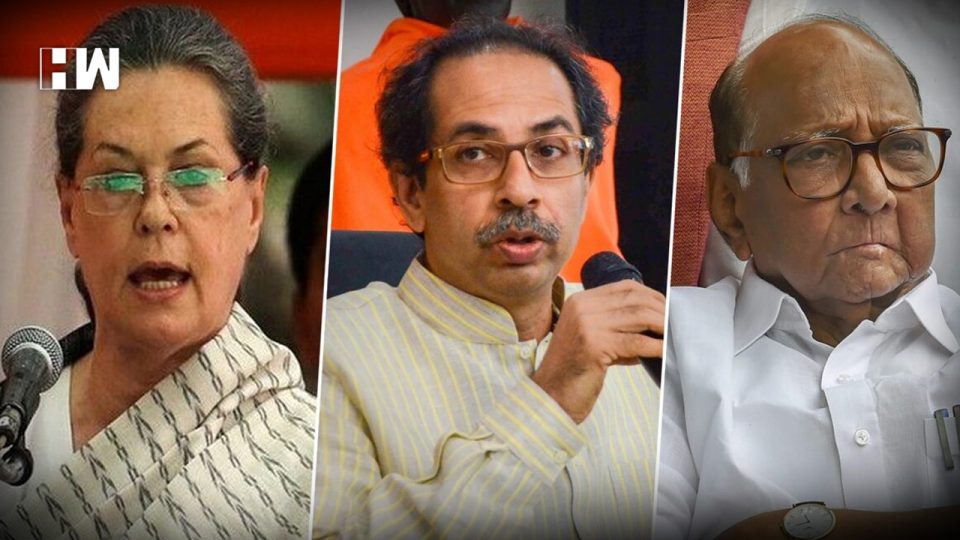After defeat in the 2014 Lok Sabha elections, the then Congress-NCP government-approved quotas in jobs and education for Marathas (16%) and Muslims (5%).
Mumbai: Uddhav Thackeray-led Shiv Sena, Nationalist Congress Party (NCP) and Congress government called as Maha Vikas Aghadi is going to bring reservation for Muslims
Maharashtra Vikas Aghadi government will soon bring a reservation for Muslims, Congress Minister Aslam Sheikh has revealed.
The Congress Minister Aslam Shaikh has claimed that this reservation for Muslims was part of the Congress-NCP-Shiv Sena alliance’s common minimum program.
Aslam Shaikh has claimed that the ‘Maha Vikas Aghadi’ government will soon ensure reservations for Muslims. Shaikh said the demand is rooted in the common minimum program of the ruling alliance, which includes adherence to secularism. Congress leaders from the minority community has also demanded the reservation.
The religion-based reservations demand might add to the troubles of a government already walking on thin ice on issues such as the Citizenship Amendment Act, National Register of Citizens and senior Congress leader Rahul Gandhi’s criticism of Hindutva icon Vinayak Damodar Savarkar on several events.
With three ideologically dissimilar parties as allies, the government, especially the ShivSena whose party president Uddhav Thackeray is the chief minister, may be caught in another bind on quotas for Muslims.
The ShivSena, which presents a study in contrast for more reasons than one, seeks reservations based on economic criteria rather than caste. The party opposed the BP Mandal Commission report, which led to quotas being extended to other backward classes (OBC), despite having a bulwark of support from the OBCs in Maharashtra.
After defeat in the 2014 Lok Sabha elections, the then Congress-NCP government-approved quotas in jobs and education for Marathas (16%) and Muslims (5%).
However, the Bombay high court stayed the Maratha quota and reservations in jobs for Muslims. Later on, the Devendra Fadnavis-led BJP government, in which the ShivSena was the second partner approved a law for Maratha quotas but overlooked Muslims. The Maratha quota issue is now in the apex Court.
A senior ShivSena leader has admitted that if the demand for reservations for Muslims, which is being pushed by few leaders from Congress, could put the Sena in trouble. Despite being born as a nativist, sons-of-soil party Sena tapping into the existential dilemmas of the ‘Marathi manoos’ in Mumbai, took a turn towards militant political Hindutva in the late 1980s.
If Shivsena is forced to agree to quotas for Muslims then they might return to Hindutva politics, with whom its cadre once clashed on the road in communal conflagrations like the 1992-1993 Mumbai riots. The opposition Bharatiya Janata Party (BJP) may also use this opportunity to criticize its erstwhile ally, by claiming that the ShivSena is forced to surrender and make compromises for power.
Currently, the percentage of reservations in Maharashtra is 78%. It includes categories such as Scheduled Castes (SC) and SC converts to Buddhism (13%), tribals (7%), OBC (covers both, Hindus and non-Hindus with economic ceiling) (19%), DNT (11%), special backward (2%), socially and educationally backward (Marathas) (16%) and economically backward from the general category (10%).
A ShivSena minister has admitted that the coalition may come into trouble on the Muslim quota issue considering its emotive appeal and potential for communal polarization and mass mobilization in an age of rising majoritarian assertion.
The ShivSena may have compromised on ideologically to accommodate secularism as one of the credos of its government. It may face a challenge on how it negotiates the issue of quotas for Muslims, with much at stake for the party and the government.
As an independent media platform, we do not take advertisements from governments and corporate houses. It is you, our readers, who have supported us on our journey to do honest and unbiased journalism. Please contribute, so that we can continue to do the same in future.

